Adrenal Fatigue: The silent epidemic
Image: africa / FreeDigitalPhotos.net
I was first diagnosed with adrenal fatigue 10 years ago. At the time I dismissed it as a serious illness, after all I didn’t seem to have any symptoms that stood out from most Americans. I knew that I needed to sleep more and exercise more and manage my stress better, doesn’t everyone? I did change how I ate and tried to take better care of myself but I really didn’t take it very seriously for some reason. I guess it just seemed too hard to fix and not very important. I was still young and foolish enough to think I was invincible.
I would say that most people in America today have some form of adrenal fatigue. That fact normalizes it and makes it hard to take it seriously. I now realize that many severe illnesses are becoming “normal”. Cancer, diabetes, heart disease, high blood pressure, these are all on the rise and common enough that they get a bit of a “ho hum” response from us when they come up. If these obviously severe issues don’t get our attention anymore, it is hard for something like adrenal fatigue to really get through. Adrenal fatigue didn’t get my attention until I had trouble functioning day to day. I hope that some of you aren’t that far gone and can reverse things before you get there.
The classic symptom of adrenal fatigue is being tired all the time no matter how much you sleep. There are other symptoms as well. Here are some of the more common ones. This is not an exhaustive list.
- Trouble getting up in the morning, “needing” a cup of coffee to get going
- craving salty and/or sweet foods
- mild depression
- increased respiratory infections/difficulty recovering from sickness
- allergies both food and airborne
- asthma
- hypoglycemia
- brain fog
- insomnia esp between 3-5 am
- IBS
- Low Blood pressure
- sensitivity to light and cold
- irritability, anger, impatience
- panic/anxiety attacks
- burst of energy in the evening after dragging all day
Your adrenal glands are tiny pea sized glands located on your kidneys. Despite being tiny they are incredibly important. If your were to have your adrenal glands removed you would die without the hormones that they provide. Two of the hormones that they produce are cortisol and adrenalin. These hormones are your stress hormones. That is they help you cope with stress. Cortisol helps to smooth things over. It helps you to calm down when you are sad or afraid or angry. It also is involved in your immune function, regulation of blood sugar levels, and generally alertness. Your blood level of cortisol should be the highest for the day at the time that you wake up in the morning and the lowest in the middle of the night when you are sleeping. Not enough cortisol in the morning makes it difficult to wake up and feel alert. Too much at night makes it difficult to relax and go to sleep.
If you use your cortisol more than is biologically normal your adrenal glands get tired. This can be caused by many different kinds of stressors. Illness, unhappy relationships, staying up too late having fun, grief, excessive consumption of carbohydrates, and many other activities that seem pretty normal can add up over time and wear out your adrenal glands. At first they lose their ability to regulate the release of cortisol. At this point your cortisol will tend to be high all the time. This can lead to weight gain, insomnia and high blood pressure. If nothing is done to manage the chronic stress on the body, the adrenals will then become exhausted and unable to produce enough cortisol when called on. This is a more dangerous situation. The human body can’t survive without some cortisol and is vulnerable to infections (which require a higher level of cortisol to fight them).
Sometimes it seems like these stresses are unavoidable. Children waking in the night, work or school deadlines, or relationship difficulties. Other times these stressors are pleasurable and are hard to label as a stress at all: travel, marriage, the birth of a baby, a new job, going out with friends to celebrate, eating a large piece of chocolate cake. Each of these requires the adrenals to release some extra cortisol to cope with this stress and keep you running smoothly. Adrenalin is what you use if cortisol is not enough either because it is depleted or because the need is so great. It is what helped prehistoric man outrun a lion and it is what you feel when your child is dashing toward the street and you are running to catch them. It gives you a strong burst of energy but it also comes at a cost. It uses up a lot of energy and can cause you to feel jittery. It is great for outrunning a lion but less helpful when the car in front of you cuts you off or when your blood sugar drops in the middle of the night. Those latter two are times when cortisol should step in and smooth things over by moderating your emotions or helping your blood sugar to stabilize, but if you don’t have enough cortisol at those times the body instead uses adrenalin to do the job. If the body doesn’t regulate your blood sugar in the middle of the night you would fall into a diabetic coma and die. If there isn’t enough cortisol available to do the job, the body calls on the next best thing - adrenalin. However, a shot of adrenalin in the middle of the night has a very unfortunate side effect; it causes you to be wide awake. Sometimes with a pounding heart and a feeling of panic or urgency and sometimes just wide awake and hungry (low blood sugar).
I want to take a moment to talk about children. During the third trimester of pregnancy the mother is able to “borrow” from the babies adrenal glands if she is in need. This is good news for the mom and it explains why so many women have extra energy in the third trimester and report feeling the best of their whole pregnancy. However this is bad news for the baby. If mom borrows too much/too often then the babies adrenal glands can be stressed before the baby is ever born. This means that the baby is born with an increased susceptibility to infection, decreased capacity to cope with stress, increased risk of allergies and asthma and all of those other things in the list above. I had both of my children after my diagnosis of adrenal fatigue. In fact, I had my adrenals tested a few times including shortly before my pregnancy with my second daughter. At that time my adrenal function was extremely low, just a flat line across the bottom of the testing box. My Dr put me on a low dose of hydrocortisone (it is bio-identical cortisol) that I continued through my pregnancy. That coupled with a much less stressful birth probably protected my younger daughter from the more severe symptoms her sister experienced as a young baby. I now know that the dose he gave me was lower than the minimum now recommended for cortisol replacement therapy and that explains why I didn’t notice any significant benefit at the time. One of the frustrating things about adrenal fatigue is that it often interferes with normal restorative sleep. Getting more sleep is one of the most important actions you can take to help to heal your adrenals.
One of the most frustrating things about healing adrenals is how much time it takes. There really aren’t any short cuts to restoring adrenal health. What they need more than anything is rest. That doesn’t sound so complex but I find it difficult to get more than 7-8 hours of sleep out of every 24. My children also struggle with sleeping enough and at the right time. Some children with adrenal fatigue will have hyperactive behaviors. Fatigued is not a word that you typically would use to describe them. This is because they are running on adrenalin. Their cortisol ran out and now they have this crazy energy coursing through their veins and causing wild out of control behavior. As my daughters adrenal fatigue is healing she is finally able to get more sleep and has far less out of control behavior. Dr Schwartzbein talks about her own recovery from the adrenal fatigue caused by her training to become a Dr. She says that she spent several months getting 12 hours of sleep a night to recover and heal.
How much sleep do you get a night? Do you have any symptoms of adrenal fatigue? My next blog post will be about what you can do to diagnose and heal adrenal fatigue.
For more information about adrenal fatigue you can to to this website.
For part 2 see Adrenal Fatigue: How can I know for sure?




29 Comments
Trackbacks/Pingbacks
- The Causes and Symptoms of Adrenal Fatigue and Things That You Can do to Treat - [...] effectively. Through these tips, you can be sure that you can deal with adrenal fatigue effectively.Our lives today are …
- “Cherries On Top” - [...] issues my family faces are tongue ties, MTHFR mutations, adrenal fatigue and dental cavitations. We use essential oils, acupuncture, …
- Adrenal Fatigue: How can I know for sure? | Loving Our Guts - [...] Adrenal Fatigue - The Silent Epidemic [...]
- Adrenal Fatigue: What can you do about it? | Loving Our Guts - [...] Adrenal Fatigue: The silent epidemic [...]
- Next Up In Our Lyme Journey | Loving Our Guts - […] as some Rx medications to support the various body systems that Lyme taxes like our thyroids and adrenals. We …
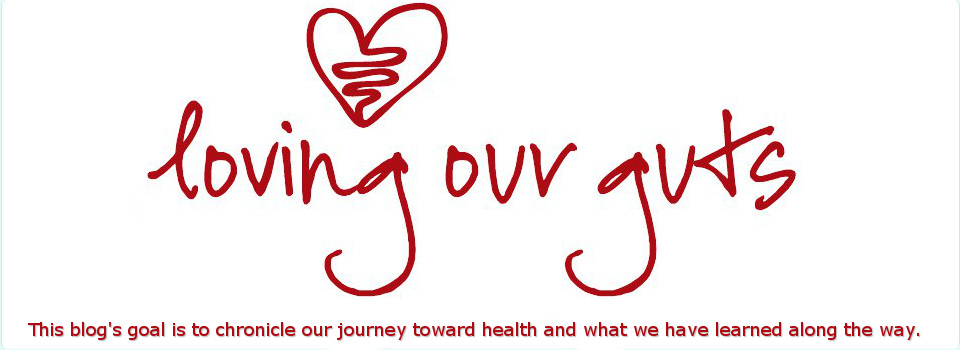

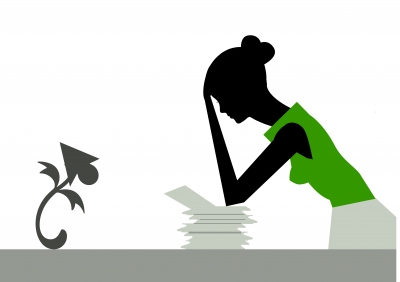






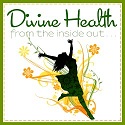






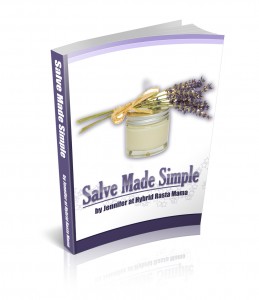
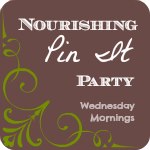

I too have trouble sleeping and only get about 4-5 hours of solid sleep (6-7 on a good night)even though I am in bed for 8-9 hours. I usually fall asleep right away between 10 and 11 pm but wake am often awake from 1-4 am. I was diagnosed with adrenal fatigue last spring after 6 months of unexplained exhaustion and depression/anxiety. Still struggling with it quite a bit today but have made small improvements. Although I switched to an organic diet a while back, I am new to traditional foods/cooking and am implementing what I can manage. The brain fog of adrenal fatigue makes it difficult and overwhelming to make too many changes right now. My naturopath recently prescribed me a high dose of 5HTP to increase my serotonin during the day and melatonin at night. It’s taking some time but it is slowly starting to work. I have read several traditional food blogs lately dealing with the topic of adrenal fatigue and personal stories of struggle with it. It has been very encouraging for me as I feel very alone in what I’m dealing with. Not very many people I know relate to anything I’m dealing with. Very interested in the rest of the this blog series
In February 2009 I bought the Adrenal Fatigue books for my sisters two and four years younger than me. I’d had a copy of the book for a few years prior but could never get myself to restrict my diet and there were a lot of other factors I felt were too overwhelming to do anything about. I have a personal blog wherein I frequently finished up the post with a comment on how exhausted I was and how I’d have to pray and ask God to help me get going in the morning (I’ve never tolerated coffee well so only depended on it in a desperate situation and then could only drink 4 ounces at a time or I’d get too jittery and nervous). Last year things got really stressful in my home life and at work. I started having multiple hot flashes at night but I’ve since learned they were adrenaline rushes because I’d heat up but also wake up feeling like I was having a panic attack. “I hope that some of you aren’t that far gone and can reverse things before you get there.” I also wish this for your readers. Please, don’t keep driving yourself until you can no longer function. In hindsight I wish I had had my saliva test done years ago and addressed the issue before it got to how bad it did this past summer. Great post, Patty, looking forward to the next installment.
So true! My husband just went through an adrenal crisis. Really opened my eyes to where I could be headed.
Very interesting about the mother being able to “borrow” from her baby’s adrenals!
I was diagnosed with low adrenal function in October. Just like you, I assumed everyone was *this* tired. I mean, everyone complains about that “2:30 feeling” in the afternoon. But, I’ve had a chronic eyelid twitch (since October 2010) and my doctor and I are furiously trying to figure out what is causing it. So, I’m doing supplements like Isocort and Adreno Distress Guard (under the care of a Chiropractic Internist). I’ve found that I don’t feel like napping as much as I used to.
The new blog looks great, Patty! This was a really interesting article. I just learned from my doctor that I don’t have adrenal fatigue, but that my elevated stress levels are probably the cause of my tiredness and could be leading me down the road to adrenal fatigue. Perhaps my leptin reset turned things around before I got tested! Anyway, I’m treating it like adrenal fatigue and am doing all the lifestyle changes. Wow, I feel better! Thanks for making me aware of this a number of posts ago.
The new blog looks great, Patty! I keep loosing my comment because I can’t seem to get the CAPTA code right . . . Can’t retype now, but I did enjoy the article.
Interesting post. Thank you for providing a basis for addressing adrenal fatigue for those of us who don’t understand what this condition may comprise of.
The prevalence of both cancer and heart disease is noticeably declining, not increase.
The prevalence of high blood pressure did not significantly change over • the 10-year period 1999–2008; it remained approximately 30%. http://www.cdc.gov/nchs/data/databriefs/db48.pdf
Can you please share with me in greater depth what issues your children had, and how you helped them? Particularly your first born? I have adrenal issues and my daughter is now 20 months old. She has a very hard time getting to sleep at night, she becomes hyper when tired and fights sleep.
My older dd never slept well from birth. She reacted to lots of foods from an early age, she was over sensitive to noise, she didn’t settle easily ever. She is now 8. She has anxiety issues that look like oppositional defiance disorder it is at it’s worst. She is distractable and struggles to keep on task. So much improved for her when we started treating her adrenals nearly a year ago. She had already been on thyroid medication for nearly 2 years when we tested her adrenals and discovered that she was very low all day long. Within a short time it became apparent that she was sleeping better. She had less anxiety and could cope with stress better. She began to be able to express her frustration in words instead of losing her temper and yelling. She also began to take naps. She still does take naps often. She stopped napping when I stopped soothing her to sleep for naps shortly after her sister arrived when she was 4. She still needed the down time but she couldn’t get to sleep without someone helping her. Now at 8 she spontaneously takes naps a few days a week. For the first time in her life she tells me that she is tired and wants to go to bed. She often goes to sleep before her sister. In the past it took her many hours to go to sleep once in bed and sleep was fitful. We relied on melatonin for a while but it only got her to sleep. Nothing kept her asleep.
Jessica,
I wanted to add that treating a child as young as yours is difficult to do. Offering her plenty of salt and foods high in vitamin c as well as things like liver is the way to do it. Encourage sleep and avoid stressful situations (that is situations that she finds stressful, for my older dd this was a trip to Walmart or a meal in a crowded restaurant or a trip in the car pretty much anywhere). Even good stress like excitement over a party is hard on adrenals and should be avoided when healing (it doesn’t mean to never have joy just be aware of how much work this is for the body to cope with). Feed her lots of fats and try to keep her from going hungry. Keep carbs low and avoid sugar. She needs lots of minerals too so bone broth must be part of her daily food. All of this also goes for you of course with your own adrenal fatigue. I assume you have been tested? Are you treating yours adequately? Have you done the rind temp method to be sure?
Thank you for this info. I was diagnosed with adrenal fatigue last summer. In all the reading I’ve done, you put it best in lay person terminology. I didn’t know about the baby part and pregnancy…that explains a lot about my daughter (as I’ve had AF since before she was born, undiagnosed)
That you for saying that! It is a real passion of mine to make complicated things easy for others to understand. I’m glad I succeeded!
I don’t think my last comment posted. Before I rewrite it I will send this.
Thank you for your simple explanation of this.
I believe I may have adrenal fatigue and as I have lots of the symptoms and suffer from insomnia. I experience this primarily when I work night shift every four months. The shift is 7pm to 7am and once I get home I can not sleep past ten or eleven. Do you have any suggestions for this? I am to the point now that I am so tired I feel like I am going to have an anxiety attack.
Most Dr’s treating Adrenal Fatigue would tell you to quit your job that you will kill yourself working the night shift. I have read some studies that say that people who work the night shift don’t live as long as people working the day shift. Your shift sounds to me like a nursing shift. My grandmother was a nurse her whole life till she retired and often worked nights and lived till she was 91. But we each have our own weaknesses and perhaps that part of her constitution could stand the abuse better than some.
I’m assuming you know about things like making your bedroom as dark as night for sleeping in the day. The sunshine tells your body it is time to wake up no matter how tired you are. You might find a Dr experienced in treating AF who can help you survive this better but it is going to hurt you. There really is no way to avoid that, you can only attempt to minimize the damage.
Great thank you! I have certainly tried everything I know how to induce sleep aside from medication but most of the time it just makes me tireder. I do need to quit my job especially now that I am a mom all in time I suppose. I am actually a deputy but am working toward being a personal trainer.
Patty,
My 8 year old daughter has exactly the same issues that you listed for your daughter. Can you tell me the protocol you followed (ie suppliments and dosages)to treat her adrenals?
Thanks so much in advance,
Pamela
The first thing that I did was get her tested with a saliva test. It took 4 samples from her, morning, noon, afternoon and bedtime. There is no way to know for sure if you are high cortisol or low cortisol without testing. Since she tested low cortisol we used isocort for her and followed the recommendations for how much and when on the yahoo group linked. and also made sure her thyroid medication was optimal (she is hypothyroid). Her sister however had similar symptoms but a very different cortisol profile upon testing so she got different supplements.
I get 8 on most nights, I need to keep trying to aim for more.
Even though I have low morning cortisol, my body never wants to sleep past a certain time in the morning, so extra hours have to happen by going to bed early. I already go to bed early at 9 most nights. When my boyfriend travels, I try to go to bed earlier.
I believe I have every one of those symptoms.
Loved this article! Thank you for sharing!
Loved this article! Thank you for sharing!
I just had my apt with my Dr today about getting tested. She had never heard of it, and laughed at me when she found a very short article about it online describing only a handful of the symptoms…but she did write me the Rx for the cortisol saliva kit after finding it at a local pharmacy.
I just had my apt with my Dr today about getting tested. She had never heard of it, and laughed at me when she found a very short article about it online describing only a handful of the symptoms…but she did write me the Rx for the cortisol saliva kit after finding it at a local pharmacy.
Hi Patty,
Informative article - it is amazing how many suffer from adrenal fatigue. Truly a “21st Century Stress Syndrome”!
The key point is each individual will have different stressors and different reactions and will have to determine the root causes and treat appropriately.
Generally speaking, eating healthily (so cut out the processed foods), avoiding stimulants (sorry, no coffee with two sugars!) and supporting your adrenals with the right supplements should assist. Siberian Ginseng, Vitamin B5, Tyrosine, Magnesium and Chromium could all help.
We have a number of case studies on our website.
Thanks,
Mark
I know this is an older post, but I was diagnosed with adrenal fatigue earlier this year. Working with a naturopath, I started feeling immensely better about 4 months ago. Saliva tests confirmed that my hormones were back on track.
I’m now 8 weeks pregnant, and afraid that the stress of worrying about possible miscarriage is sending me sliding back toward adrenal fatigue again. It doesn’t help that morning sickness is making it really hard to choke down bone broth and that meat sounds absolutely repulsive right now. Do you have any advice for how to keep supporting my adrenals during pregnancy? I’m trying to force myself to have some bone broth every day, and some protein with each meal, but it’s a battle when all that sounds good is fruit. Any advice would be so appreciated - your article is so informative and easy to understand!
Salt, fat, protein, high iron foods, b-vitamins, leafy greens, high magnesium foods. Those are all supportive of your adrenals and fine while pregnant. Also many pregnancy teas are very good for your adrenals. Red Raspberry leaf tea, nettle tea etc.